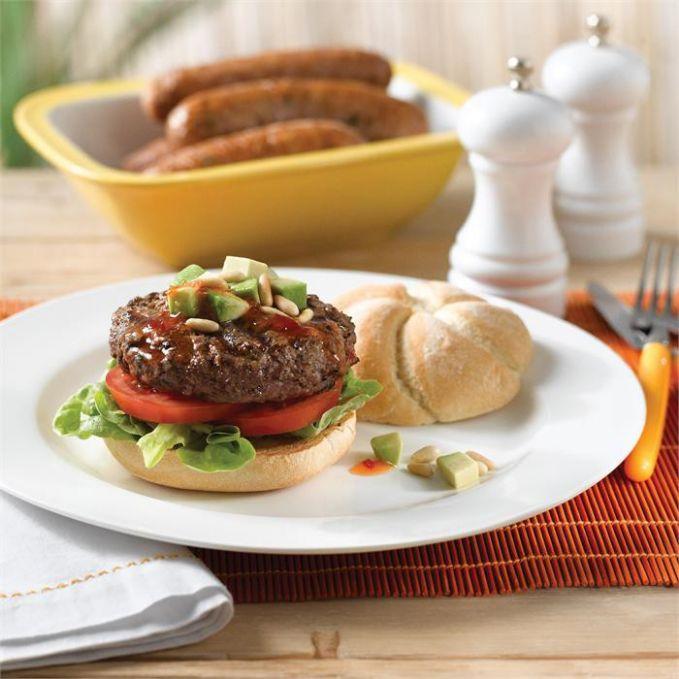- Home page
- Looking for Aussome recipes?
- Butchery
- Roasted beef rib eye seasoned with thyme and sage leaves

Roasted beef rib eye seasoned with thyme and sage leaves
Serves
6
Prep Time
15
Cook Time
75
Ingredients
1.5 kg piece rib eye/scotch fillet
fresh thyme sprigs, and fresh sage leaves
roasted vegetables (small whole parsnips and carrots) to serve
Method
- Preheat oven to 200ºC. If you have time, tie the beef with individual pieces of string at 5cm intervals (you can also get your butcher to do this). Brush the beef roast lightly with oil and sear it on all sides over a moderately-high heat until evenly browned.
- Season the beef with pepper and salt and rub the fresh herbs over it. Tuck a few sage leaves under the string.
- Place the beef on a rack in a roasting dish. Add a little water to the roasting dish (about ½ cup). Roast for 60 minutes for rare, 75 minutes for medium and 90 minutes for well done. For ease and accuracy use a meat thermometer.
- Remove the beef roast, cover loosely with foil and rest it for 20 minutes before carving.
- Serve with roasted vegetables.
Tips
- Judging your roast's degree of doneness using a meat thermometer: The internal temperature of the meat should be: Rare 55-60ºC, Medium 65-70ºC, Well done 75ºC.
- You can also use tongs to test the roast's doneness. Gently prod or squeeze the roast rare is very soft, medium rare is soft, medium is springy but soft, medium well is firm and well done is very firm.
- Most beef roasts don't need to be tied, but some cuts like rib eye/scotch fillet and eye fillet/tenderloin benefit from it. Tying it gives the beef roast a compact shape, which helps it cook evenly and slice easily. It also gives you the chance to tuck in some extra flavour. Slide in some fresh oregano, rosemary or a few fresh bay leaves or under the string if you prefer in place of thyme or sage.




